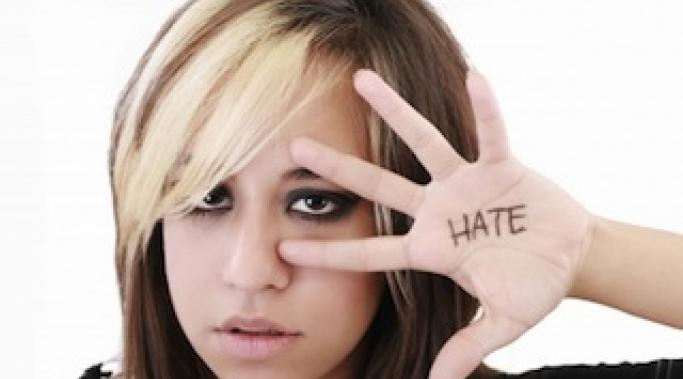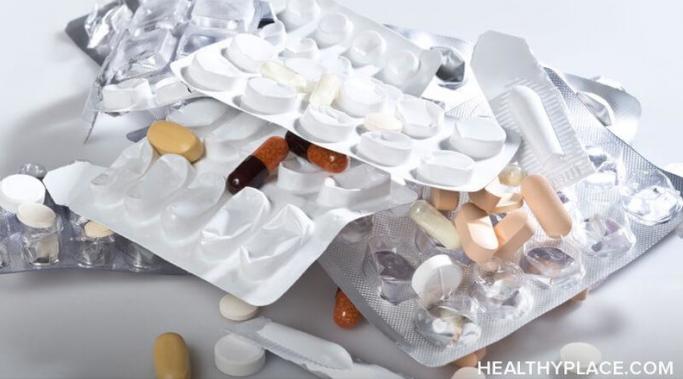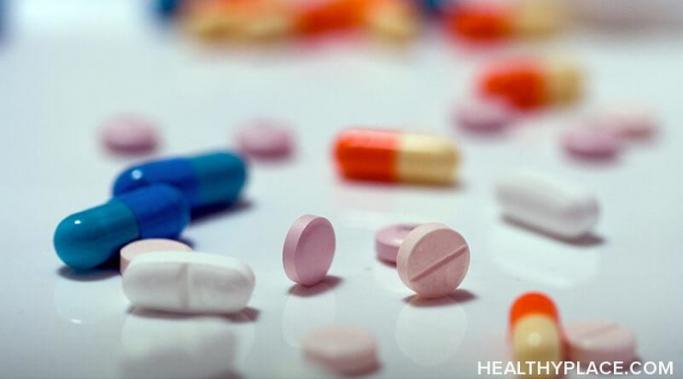I like my job. I get to write for a living which is something many writers don't get to do. And moreover, I get to write about things that matter to me. Also a great luxury for many writers. These are pleasures as are the vast majority of people I get to meet.
I do have the great displeasure, though, of seeing vehement hatred for those with a mental illness. People who hate show up here, on my blog and elsewhere. People with a hatred for bipolar disorder seem to seek places to express their hatred.
But hatred of the mentally ill is simply another prejudice. Hatred of people with bipolar is the same as racism and just as unacceptable.
Breaking Bipolar
The journey of a thousand miles doesn't begin with a spin class, but everyone knows they should exercise. People should be doing it right now. Me too. We should slowly and calmly step away from the Internet. And most of us even know exercise acts as an antidepressant. Which means if we actually got up and walked around once in a while, we might feel better.
But we don't do it. Not the average North American and especially not the average mentally ill North American.
How does a person with a mental illness fight that?
Last night I participated in the first tweetup for the Society of Participatory Medicine. In their words,
Participatory Medicine is a cooperative model of health care that encourages and expects active involvement by all connected parties (patients, caregivers, healthcare professionals, etc.) as integral to the full continuum of care.
Not surprisingly, this is something with which I firmly agree. I believe in patients as active participants in their own healthcare. I say it all the time - the doctors aren't the ones taking the pills, you are.
The issue with pushing for patient "participation" is not everyone is capable of wholly participating in their own healthcare. Sick people are busy being sick. They don't have time to read research papers.
While some in the tweetup agreed, two notable exceptions occurred:
""too sick"? -why Patient support groups are key took 4 building the 'plumbing'."
"One can't be busy getting well & busy being sick at the same time. The patient has to choose."
Sounds like blaming the patient to me.
I've discussed how I like to use the word "crazy" and don't find it derogatory. Us crazies, we have to stick together, I might say. I've also said that people can use any word to hurt you. Don't tell me you're a secretary.
But some people use a mental illness diagnosis as a weapon. Some people insult and abuse with the facts of illness and treatment.
So, interesting thing. Mental illness has a tendency to run roughshod through a person's life. Everything in life goes by the wayside to make room for the unbearable being of crazy. You know you're alive because you're in pain.
And then, against all odds, or at the very least against some odds, you start to feel better. It's a miracle. Breath and life and oxygen and delight fill the lungs. Suddenly life is easy. Cupboards get organized, relationships get mended and Work Gets Done. Life is Good.
Why, then, is it so freakin' scary?
I recently wrote about the myth that you can be "too smart" to have bipolar disorder. I wrote about the prejudicial and false thought that if we were "smart enough" we wouldn't have bipolar. This, of course, isn't remotely true.
A couple of people requested more about bipolar disorder and intelligence.
But I'm sorry to say, the truth is, people with bipolar disorder are actually cognitively impaired compared to the average individual.
I've been wrong about a lot of things in my lifetime. Life is funny like that, always moving the ball when you're not looking.
And one of them was this: I thought I was too smart to have a mental illness.
Today I read another article on a reasonable person's assertion psychiatric medication doesn't work. The evidence is thin, they say, and the studies don't always show a meaning difference between the drug and the placebo. According to them, everyone with a mental illness doing better on psych meds is experiencing the placebo effect.
OK, so let's look at this for a minute.
At some point in the past 40 years some (undoubtedly) new-age guru decided saying nice things to yourself in the mirror was the key to happiness.
"Yay me. I'm so great. Look at me go."
Really? Seriously? You need to look in the mirror and say that to yourself? And you're buying it? Are you four?
Recently I switched from antipsychoticX (aX) to antipsychoticY (aY). I despise changing medications; however, this change was necessary due to the general lack of success of the previous cocktail.
And in spite of the fact that given the tiny doses there shouldn’t have been any dramatic effects from this change, naturally, there were. A medication change is pretty much always pain on a stick (that hits you, a lot).





